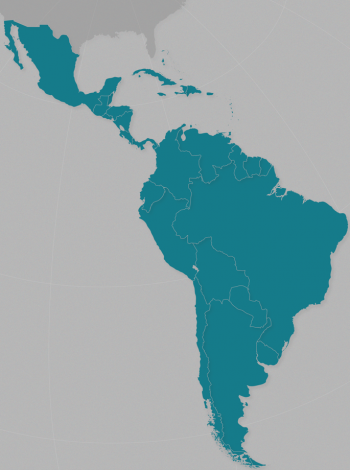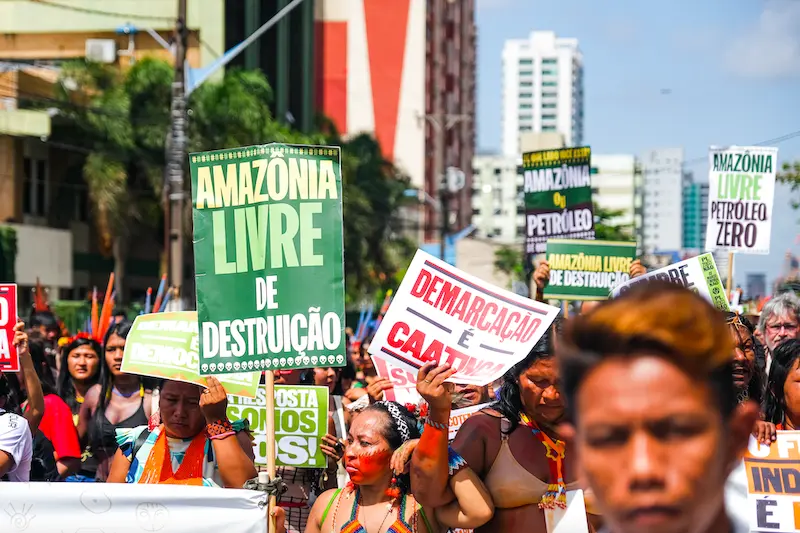President Luiz Inácio Lula da Silva’s administration brought high hopes of reversing devastating environmental destruction. Will a new fossil fuel boom undermine promises for change?
With record-setting fires in the Amazon dominating headlines in recent years, the global environmental imaginary of Brazil often brings up scenes of deforestation, threats of tremendous biodiversity loss, and violent displacement driven by the cattle, forestry, and agribusiness industries. Now, on the heels of a wave of oil industry privatizations, pressure has mounted around the question of oil extraction in the Amazon. While deforestation often tops the national and international agenda, less present is the question of air pollution from the country’s oil, gas, and coal industries.
Care for the environment, however, seems to be part of Brazil’s social fabric, or what brings a lot of people together. In January 2023, President Luiz Inácio Lula da Silva returned to power on a platform of socioeconomic change and environmental protection. His appointments of Marina Silva to head the Ministry of Environment and Climate Change and Sônia Guajajara to lead the new Ministry of Indigenous Peoples were especially promising.
But a strong governmental commitment to environmental issues has been lacking. Lula has faced strong criticism for his lack of firm opposition to congressional moves that diluted the powers of both ministries, stripping them of tools to protect water resources, prevent land grabbing, and slow deforestation.
Brazil’s oil production increased in 2022 to 3 million barrels per day, mostly from its deep-water offshore pre-salt oil fields. The energy minister recently announced a projected goal of producing 5.4 million barrels per day by 2029, which would elevate Brazil to being the fourth largest oil producer in the world and lock the country into a carbon-intensive energy model. Giant corporations like Total, Equinor, and Petronas are already reaping the profits. On December 13, the day after the COP28 climate summit ended, the Brazilian National Petroleum Agency (ANP) auctioned drilling rights to 602 exploration areas, several in buffer zones of protected areas in the Amazon that would impact Indigenous and quilombola territories. The state oil company Petrobras—despite being discredited in a sweeping corruption scandal that played out between about 2014 and 2018—is now suddenly positioned to become a major corporate player regionally and globally.
read more: https://nacla.org/brazil-crossroads-oil-gas


